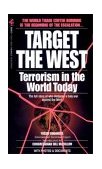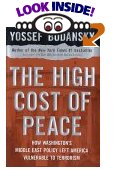|
| Home | About Kashmir Herald | |
Volume 4, No. 6 - December 2004 - January 2005 |
|
| Featured Article |
|
|
|
Summertime? Reflections on the Peace Process in
J&K PRAVEEN SWAMI Senior Fellow at the United States Institute of Peace, Washington, DC. Audiences schooled in Hindi film, if asked to watch current events in Jammu and Kashmir (J&K), would have little doubt where the script was headed: the final scenes of tearful reconciliation, followed by an orgy of ecstatic dancing, could safely be predicted to be just a few minutes away. Two summers ago, Prime Minister Atal Behari Vajpayee promised an audience at the Sher-i-Kashmir Stadium in Srinagar that his new peace initiative would soon bring peace to J&K. Eighteen months and a general election on, another Prime Minister seems to have set about the unusually munificent exercise of turning his predecessor into a prophet. Indian newspapers are full of news about troop withdrawals; dialogue with Pakistan, both back-channel and formal, is in full flow; violence has declined to levels which, though nowhere near what could be described as normal, are certainly a relief to all those who have had to live with one of the world's most brutal conflicts for a decade and a half. Several elements of the current situation are indeed positive. Prime Minister Manmohan Singh has contained the damage inflicted by Prime Minister Vajpayee's eminence grise, Brajesh Mishra, left some in Pakistan believing that India would consider territorial concessions. Then, General Pervez Musharraf's '7 regions' proposal suggests he may be preparing audiences in Pakistan for sub-optimal outcomes. Pakistan has been pushing variants of General Musharraf's proposals - which in their bare-bones form envision a sundering of J&K along its ethnic-communal fault lines - for years. As such, it is unlikely that India's out-of-hand rejection of the latest proposals would have been unanticipated in Pakistan. Nonetheless, the 'scheme' was articulated. Finally, violence has been in steady decline since 2001 [see data]. Part of this de-escalation may be attributed to the success of Indian coercive diplomacy, and to the fencing of the border. Nevertheless, the remarkable drop this year in the numbers of foreign terrorists killed suggests that Musharraf has at least part-delivered on his 2002 promise to end cross-border terrorism. India, having ruled out solutions involving the redrawing of borders, will now seek to achieve two objectives: try and secure the actual dismantling of the terrorist infrastructure in Pakistan - the winding up of camps, stripping of assets and demobilisation of cadre; more important, search for partners among secessionists, with whom it can give form to its stated objective, a peace which involves greater federal autonomy in J&K. Two questions are key to the success of these twin objectives. First, it is still far from clear just why Pakistan will be willing to go along with a scheme that gives it little - unless General Musharraf has, at last, come to believe that state support for jihad undermines his own country. Second, there appears to be no clear notion of what incentives there might be for secessionists within J&K to go along with the scheme - and, indeed, whether they can sell it to their constituents without seeing them defect en bloc to mainstream political parties. As such, the new order seems to have no more cogent a paradigm for peacemaking than existed in the mid-1990s: bringing the secessionists on board into mainstream politics, through a process of negotiation, wheedling, cajoling and the provision of incentives. History holds out some interesting lessons for the prospects of this line of engagement, which in times less polite than our own used to be called bribery, flattery and subornment. Hours before Prime Minister Manmohan Singh arrived at the Sher-i-Kashmir International Cricket Stadium to deliver his first public address in Srinagar, security forces gunned down two terrorists just a few hundred metres from the venue. The man with overall responsibility for the counter-terrorist operation, Kashmir-range Inspector General of Police Javed Ahmed Makhdoomi, had reason to congratulate himself on the success of the forces under his command: armed with assault rifles and a rocket-propelled grenade launcher, the terrorists could conceivably have sparked off the next India-Pakistan war had their attack succeeded. Not all that many years ago, Makhdoomi - and a welter of other establishment figures in J&K - were on the other end of the war. In 1966, Inspector General of Police Surendra Nath had authored a top-secret report on the Master Cell and its subsidiaries, a Pakistan-backed terrorist group that carried out an extensive campaign of sabotage in the build-up to the 1965 war. An encyclopaedic study of Pakistani sub-conventional warfare during the period, Nath's report named Makhdoomi, along with current J&K Law Minister Muzaffar Beigh, the late National Conference Cabinet Minister Bashir Kitchloo and senior secessionist politician Fazl-ul-Haq Qureshi, as low-level collaborators in the Master Cell's activities - along with several others, who acquired less eminence in public life. Without addressing the question of whether or not the four men were actually guilty of the allegations levelled at them by Nath - who died in a 1994 air crash, while serving as Governor of Punjab - the fact is the group represents a remarkable segment of the political spectrum. All four, by Nath's account, were sympathetic to the secessionist position as young men; only Qureshi now stands on that end of the fence - and even he endorsed the abortive ceasefire between Indian forces and the Hizb-ul-Mujaheddin in 2000-2001. Both Kitchloo and Baig ended up as targets for terrorist attack; Makhdoomi now attempts to prevent such attacks, and to apprehend or kill their perpetrators. All were beneficiaries of a political system that sought rapprochement, rather than the perpetual exile or neutralisation of those who transgressed its limits. Such journeys have been common in J&K - Sheikh Mohammad Abdullah himself, it may be recalled, was suspected of conspiring with Pakistan - and their trajectory has had a profound impact on official Indian thinking. "Pakistan's attempt to build up a movement of espionage and subversion inside the State of Jammu and Kashmir continues to be an unabated and undeterred menace," a senior politician wrote, in one of the most lucid expressions of official thinking, "While the administrative machinery in general and law and order machinery in particular have to continue to be vigilant and alert we also have to take an urgent political view of the situation. In Kashmir, we have to seek and strive for the emotional enlistment [sic] of the people with the rest of the country". Either Prime Minister Manmohan Singh or Prime Minister Atal Behari Vajpayee could have written these words. Their author was, in fact, then J&K Home Minister D.P. Dhar, commenting on the covert cells Nath had uncovered over three decades ago. The journeys that key figures have taken since then also point to some of the limitations of a certain kind of peacemaking: in essence the search for accommodation of secessionists within the Indian political system. Past records show that such accommodation can indeed be brought about, but also underlines its limitations. The accommodation of elements of the 1965 terrorist cells did not, after all, stop the rise of al-Fateh in Kashmir in 1970, the subsequent rise of the Jammu and Kashmir Liberation Front (JKLF), or the massive eruption of jihadi violence in the late 1980s. If, as some observers have suggested, the Government of India intends to begin a serious dialogue on widening federal autonomy for J&K in coming months or years, these simple realities must be borne in mind. If accommodation is reached with some centrist factions of secessionists, within or outside the All Parties Hurriyat Conference (APHC), Islamists will, without doubt, reject it - and emerge with renewed legitimacy as the 'authentic' voices of the anti-India jihad. Terrorist groups and Pakistan, for their part, have no reason to accept a deal of the kind India has in mind; both know variants of the autonomy option have been on the table for over a decade. This is precisely why both the Islamist leader Syed Ali Shah Geelani and the United Jihad Council have rubbished both Indian troop withdrawal and the dialogue process: confidence building is not a game they have any interest in playing. Peacemaking in J&K, we must understand, is not just an abstract negotiation, with all parties committed to discovering a 'rational' outcome through a process of pure reason. It is about, among other things, fundamentally irreconcilable ideas of the basis of statehood and the still far-from-spent forces that led to India's Partition. It is, for jihadi formations and elements in Pakistan's establishment, merely part of a larger war between Islam and unbelief. And it is, for many actors, an enterprise: a tawdry business in which India's Research and Analysis Wing (R&AW) plays Daddy, Pakistan's Inter-Services Intelligence (ISI) plays Mamma, mediators sing lullabies and the little baby just cries a little to get a great deal of attention. When called on to deliver, centrist secessionists can always claim either to be coerced by terrorists, or place impossible conditions on India - and thus seek further increments. "Magic", said the illusionist P.C. Sorcar, "evolves in the mind of the spectators. When they fail to build a cognisable explanation of the secrets of magic, they submit themselves to the world of fantasy and sorcery." In truth, there is no such thing as 'the Kashmir problem'; there are, instead, a maze of Kashmir problems each of such complexity that magical solutions appear the only way forward. Dialogue, however, is a process; it guarantees no particular outcome; crucially, it can just as easily create crises as avert them. However well-intentioned either General Pervez Musharraf or Prime Minister Manmohan Singh might be - there is no-public domain material that gives insight into the inner recesses of their minds and hearts - each step forward towards peace might see the objective, ever elusive, recede that little bit further away. None of this, of course, is reason not to walk the pathways to peace; just to step forward with the greatest possible caution. COURTESY: South Asia Terrorism Portal |
 |
 |
 |
|
|
Archives
| Privacy Policy |
Copyrights
|
Contact
Us | |
||